Items
topic_interest is exactly
rural voices
-
2021-09-10
A new gratitude for our little farm...
My husband and I bought a little secluded farm in Vanleer, Tennessee in 2013. We had this idyllic notion that we could grow our own food, live off the grid, and have a sense of privacy we never had living in the city. But, were were awful at it, nothing ever grew, our house was the ultimate "fixer-upper" and we were far from everything. In the last two years or so, we started to long for living in the city again, being near conveniences, and not commuting over one miles a day. Then, the pandemic came and my job sent us all home to work remotely. I am museum curator and what I do is very hands on, so that took some clever adjustment and reinvention. We also have the world's slowest internet, but I made it work by duct taping the jetpack to the only window where it worked. As the months went by, I read so many accounts of how the isolation and seclusion of shelter in place orders led to depression. Some of my friends who lived in apartments in the city described feeling claustrophobic and trapped. I realized, that despite other uncertainties caused by the pandemic, that I was happier than usual and felt completely peaceful in our little secluded twelve acre homestead. I could roam around my own land, take my dogs for walks, work on the never ending house projects, or just sit on the porch and appreciate the sunset. When things started to return to normal and we began going back into the office, I broke my foot while trail running and that added another seven months of completely remote work to my job. Physically, my recovery was grueling, but mentally I was doing well thanks to the time already spent quarantining during the pandemic. I have a new love and appreciation for this little farm that won't grow anything now. Both my husband and I have no desire to move back to the city and we have even made peace with the fact that we will never finish all the fixer-upper chores. The gratitude I feel for this beautiful place is immeasurable. I am one of the lucky people who could quarantine and not feel like I was suffering. During the pandemic, we built a small A-frame cabin down near the front of our land and offered it up as a refuge for people who needed to leave the city for a day or two. Now, it's my little yoga cabin and a place where I can sit and be thankful for my little home in the forest. -
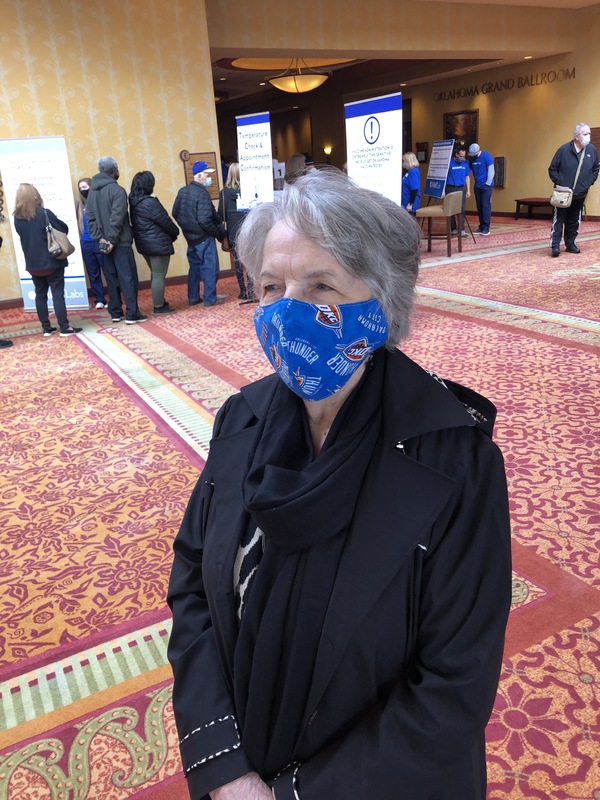 02/07/2021
02/07/2021Jo Ann Richey Oral History, 2021/02/07
This is an interview with Jo Ann Richey about her COVID-19 vaccination experience in January of 2021. She talks about how pandemic restrictions have affected her work and social life. She also speaks about where and how her vaccine was conducted. She includes personal insight into how she hopes the vaccines may change her life and society as whole in the future. Contributed by Clinton P. Roberts, HSE, for Arizona State University for the #RuralVoices and #VaccineStories collections -
 2020-01-11
2020-01-11Silent Bells & Quiet Halls: An Auditory Experience of the COVID-19 Pandemic
In almost every aspect of life, COVID-19 has put the world on mute. From canceled weddings and downsized gatherings to remote workspaces and quiet homes left behind by those we have lost, the overwhelming soundtrack of the pandemic is silence. When K-12 students in the United States transitioned to distance learning nearly 10 months ago, elementary, middle, and high school campuses were abandoned, leaving bells silenced and hallways quiet. From March to November, this silence came to define my work at Princeton Joint Unified School District in the rural town of Princeton, California. No longer did bells ring to mark the end of one period and the beginning of another, lockers no longer slammed shut as students rushed to gather their belongings, and students could no longer be heard gossiping, laughing, and playing during morning break. While this silence initially felt like summer vacation had merely arrived a few months early, the lack of auditory stimulation began to diminish morale and decrease productivity as work felt further removed from the students themselves, transforming human beings into pieces of data and names on a paper. I could often go an entire eight-hour shift without speaking to another person, frequently finding my voice raspy when I would pick up the phone for the first time in hours. Even among coworkers, passing conversations vanished and became simple one-line emails dealing only with the business at hand. As Zoom calls replaced in-person staff meetings and participants remained on mute, the noisy world in which I once worked fell even further away. When in-person learning became optional in November, the sound slowly began to return, but it had changed from what it once was. Growing accustomed to the silence over the long summer, I often found myself jolted in surprise at each unexpected bell or sound of students on the playground. The number of students has drastically lowered since we first closed in March, as many opt to remain home to avoid possible exposure, while lunchtimes are now staggered, and breaks are shortened to prevent spread, creating ominously quiet and often uncomfortable atmospheres. The unease and discomfort heard in students' softened voices displays that widespread uncertainty that has permeated every corner of society. It is my greatest hope that schools will return to "normal" for the 2021-2022 school year and that the sounds of carefree students once more fill the hallways and classrooms of Princeton Joint Unified School District. Silence has become an all-too-painful reality of the COVID-19 pandemic, and I look forward to the day that bells ring on their regular schedule, coworkers are free to converse with one another, and every student returns to campus. In images and articles documenting the pandemic, the overwhelming auditory silence that many of us are experiencing is often lost and forgotten. -
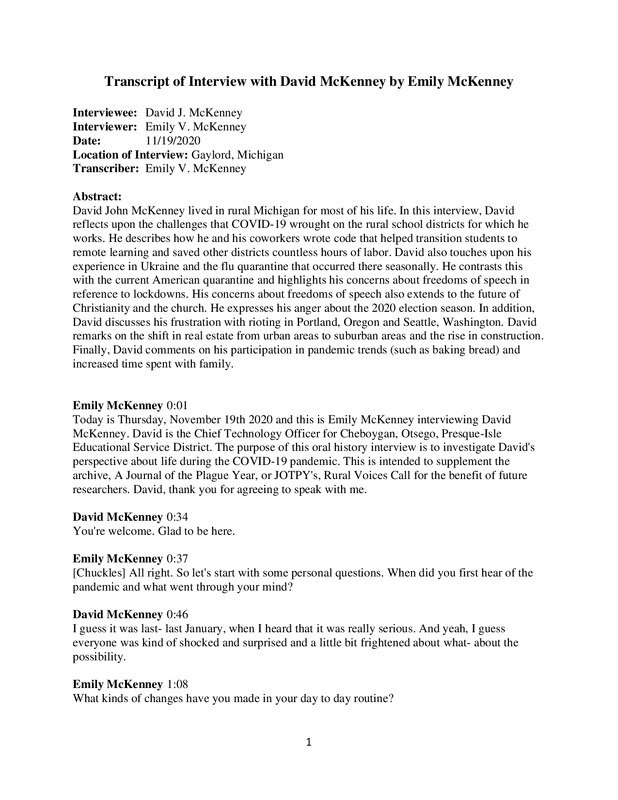 11/19/2020
11/19/2020David McKenney Oral History, 2020/11/19
David John McKenney lived in rural Michigan for most of his life. In this interview, David reflects upon the challenges that COVID-19 wrought on the rural school districts for which he works. He describes how he and his coworkers wrote code that helped transition students to remote learning and saved other districts countless hours of labor. David also touches upon his experience in Ukraine and the flu quarantine that occurred there seasonally. He contrasts this with the current American quarantine and highlights his concerns about freedoms of speech in reference to lockdowns. His concerns about freedoms of speech also extends to the future of Christianity and the church. He expresses his anger about the 2020 election season. In addition, David discusses his frustration with rioting in Portland, Oregon and Seattle, Washington. David remarks on the shift in real estate from urban areas to suburban areas and the rise in construction. Finally, David comments on his participation in pandemic trends (such as baking bread) and increased time spent with family. -
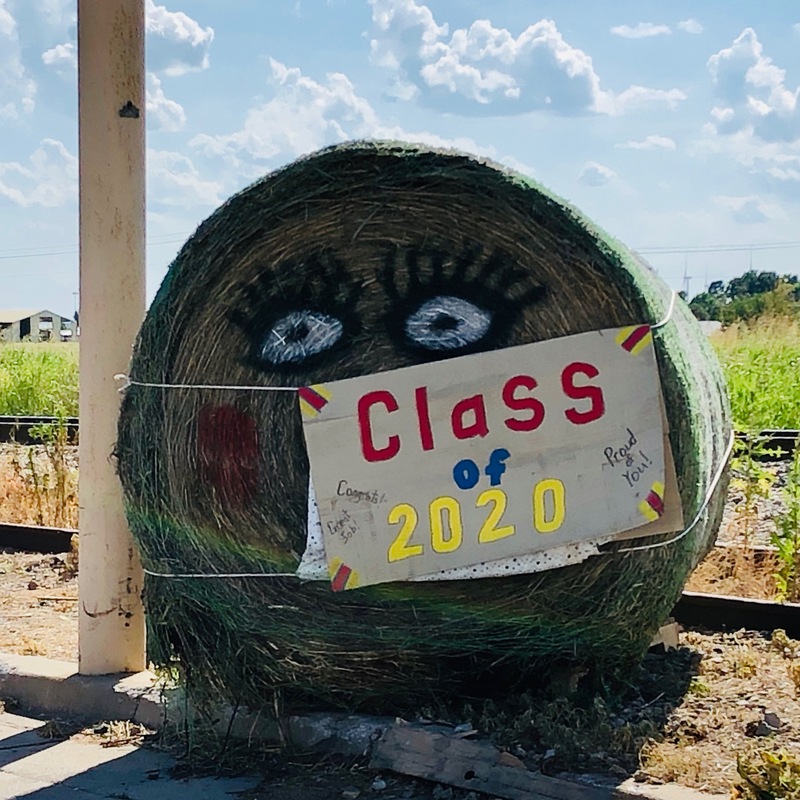 2020-06-16
2020-06-16Class of 2020 Celebrated by a Rural Community
The rural community of Tuttle, Oklahoma honored their class of 2020 high graduates with a sign made out of a round bale of hay. The round bale was located just off of State Highway 37 next to the Tuttle Grain & Supply. As part of the creativity, the bale had a sign saying: "Class of 2020" with comments such as "Proud of You!" and "Congrats!" as well as "Great Job!" The sign then covered the face of the hay bale in the design of a large face mask. The community was acknowledging the circumstances that altered the 2020 senior year and graduation to be a smaller event. -
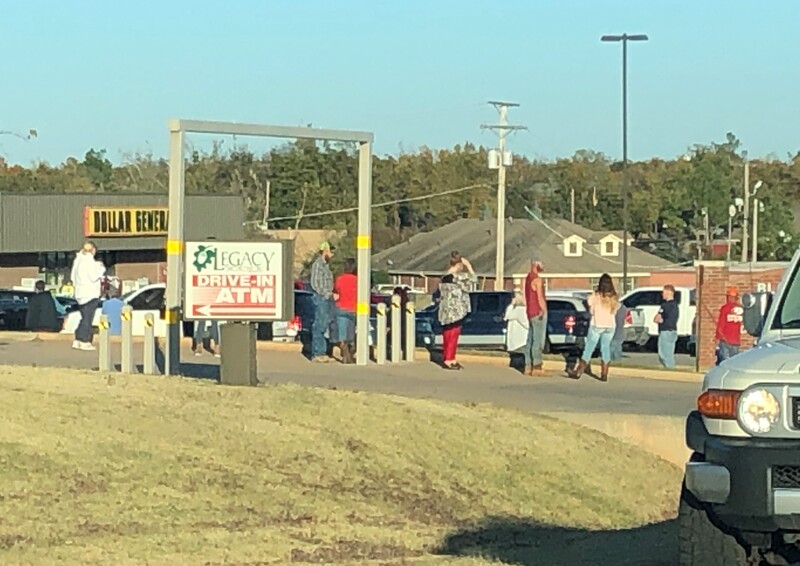 2020-11-03
2020-11-03Voting Lines Stretched Across Two Parking Lots
On November 3, 2020 I took a photo of the voting line that was spread across the Legacy Bank and Library parking lots in Blanchard, Oklahoma. The small community has several voting precincts and this is just one of them. At one point it was mentioned that people were waiting up to three hours to vote at this voting location. The crowd appeared to be somewhat spaced apart and some were wearing masks. The pandemic affected how people stood near each other, which would've been normally much closer. -
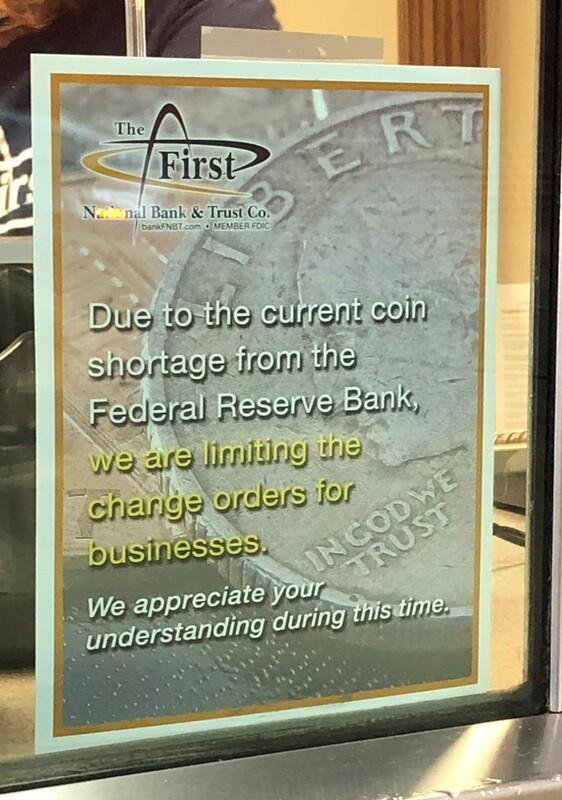 2020-07-10
2020-07-10Summer Coin Shortage Still Going in November
On July 10, 2020 the local bank had a sign displayed that warned of the coin shortage that was caused by the pandemic. Due to the shortage, local businesses were limited in the amount of coins they could request from the National Bank in Blanchard, Oklahoma. On July 24, 2020 we decided to do our part and cashed in all of our coins. This gave us some extra cash and gave the bank some extra rolls of coins to distribute to the local businesses. Signs at local fast food restaurants still display their signs on the coin shortage and occasionally cannot make exact change. For certain restaurants like Taco Bell, they were encouraging over the summer to donate the remaining change to a charity they would then distribute the money to. This is example of how the pandemic has changed our lives in unpredictable ways. -
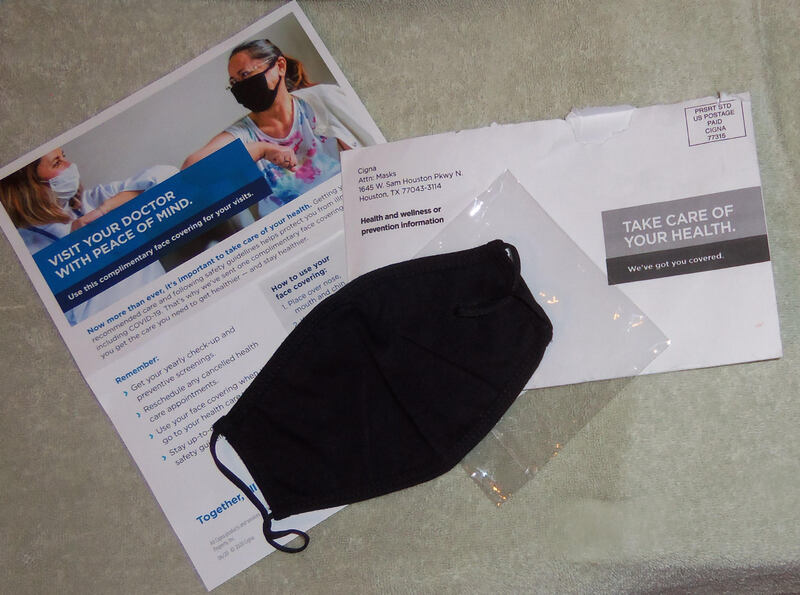 2020-08-07
2020-08-07Health Insurance Providers mailing reusable masks for medical appointments
On August 7, 2020 I received a message from a relative that their health insurance company had mailed them a small envelope with a cloth mask. At the time in Oklahoma, masks were still fairly difficult to find in stores and reusable masks were still available mostly online at considerable costs. The elderly relative said that her and her husband were told to use these if they went to a doctor's appointment or to a hospital. The pamphlet also advised them on the best way to wash and dry the mask for further use. This is something that seems like a small cost to the company, but could benefit everyone if it helped prevent people from getting sick, especially from COVID-19. -
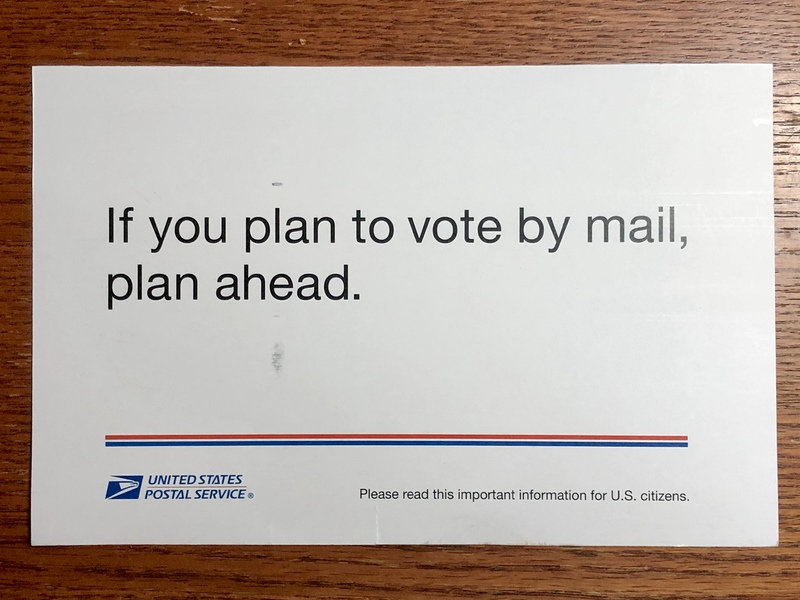 2020-09-15
2020-09-15US Postal Service notice on voting by mail during COVID-19
On September 15, 2020 I received a post card mailer from the U.S. Postal Service. The message is: "If you plan to vote by mail, plan ahead." The reverse side had my information and a note detailing a list of suggestions to prepare for mailing in a ballot during the 2020 U.S. Election. Personally, I've voted in many elections over the past few decades and voted by mail for a long time before this election as well - I've never received any information like this. You can tell that during the pandemic there was going to be a lot of pressure on voting by mail. Personally, I turned in my ballot at least a month before the actual day in fear that the postal system would be overwhelmed in the days right before the election. This is the first year where voting by mail didn't seem like a convenience, but felt like it was a large part of election history. The pandemic seems to be shifting our daily lives in ways that no one would've expected at the beginning of 2020. -
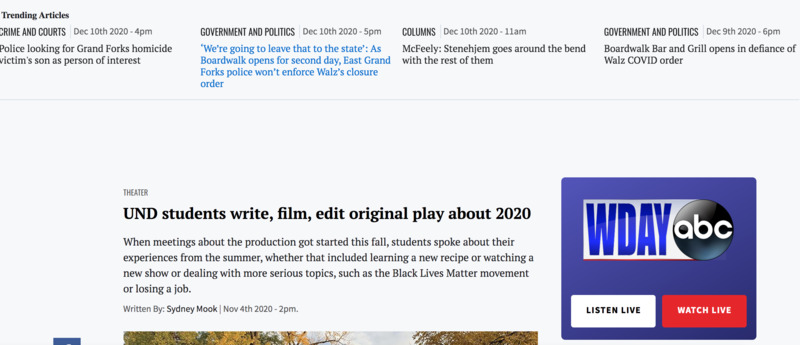 2020-11-05
2020-11-05“Once the World Stopped” - Final Trailer
https://www.youtube.com/watch?v=vLg4GmKELd4&feature=emb_title Theater students and faculty at the University of North Dakota (UND) were left with a semester’s worth of classes to fill when the performing arts department was closed down due to COVID-19 restrictions. The students and faculty decided to put a play into production that “follows a group of high school students 30 years into the future learning about the many events of 2020. Mr. Silverside, the class substitute, takes the class on a journey to the past through his experiences, stories and interactive assignments.” “UND student and actress/writing team member Erin Chaves said the goal was to create a piece that would be relatable to multiple audiences and that also carried a strong message. When meetings about the production got started this fall, students spoke about their experiences from the summer, whether that included learning a new recipe or watching a new show or dealing with more serious topics, such as the Black Lives Matter movement or losing a job.” -
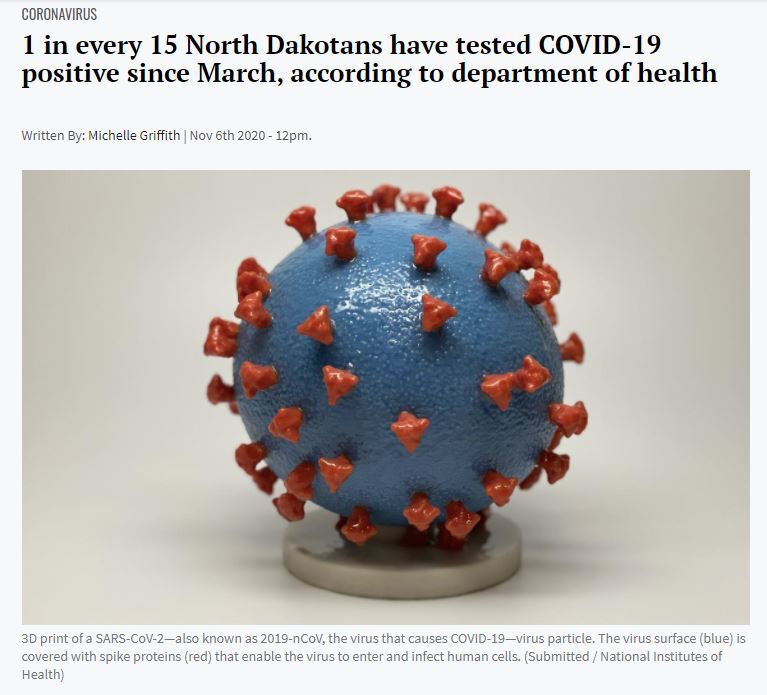 2020-11-06
2020-11-061 in every 15 North Dakotans have tested positive for COVID-19 since March.
“The prevalence of COVID-19 in the state is increasing, and North Dakota's recent surge in COVID-19 cases and deaths is becoming unmanageable. As of Friday, Nov. 6, almost 10,000 North Dakotans are known to be infected with the virus, 613 people have died either due to or with COVID-19 and the state's 14-day average positivity rate on all tests has nearly doubled in one month…North Dakota is performing the worst in the United States with the highest death rate and positive case rate per 100,000 people, according to the Centers for Disease Control and Prevention.” North Dakota is struggling with its surge in cases. The military base that my family and I live on has gone back into HPCON-C (Health Protection Condition- Charlie), which basically means the base is at the level of lockdown that we faced in the beginning of the pandemic. While travel has been discouraged for everyone during the pandemic, military members have had actual movement restrictions put on them, meaning that we haven't seen our family since last year and probably won't be able to again until at least summer of 2021. We were lucky enough to travel to South Dakota for a quick getaway before the fall semester started again, but our trip was cut short due to the spikes in cases in South Dakota. -
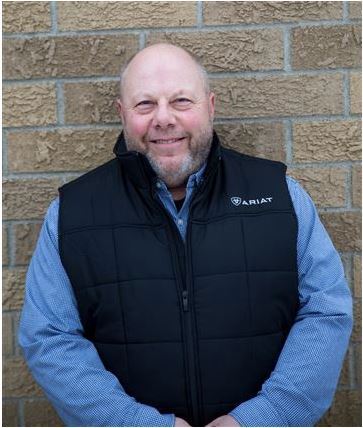 2020-10-10
2020-10-10North Dakota state legislative candidate dies due to complications with COVID-19.
This is the obituary of the North Dakota state legislative candidate, Dave Andahl, who won the seat posthumously in the 2020 election. Mr. Andahl died due to complications with COVID-19, a tragic loss for North Dakota communities. “David Dean Andahl, 55, passed away on Oct. 5, 2020. David was born in Bismarck on Oct. 30, 1964, to Ronald and Patricia Andahl. David was passionate about farming and ranching, his home state, and the quality of life of its people. David was known for being a compassionate, generous, ambitious, and inviting soul. He brought a warm light into so many people's lives over the years. Funeral services will be held 2 p.m. Wednesday, Oct. 14 at the family farm, 14501 15th St. NW, Bismarck, 58503. For those attending, masks are required; we also ask you to please social distance and provide your own chairs. Visitation will be held from 4 to 8 p.m. Tuesday, Oct. 13 at Parkway Funeral Service, 2330 Tyler Parkway, Bismarck. Burial will be held at Baldwin Cemetery. David graduated from Century High School, obtained his associate's degree from Bismarck State College, and attended North Dakota State University, where he studied animal science. After attending NDSU, he pursued one of his lifelong dreams and became a successful professional driver. He was known as "Dakota Dave," because of being from North Dakota, and his commitment to promoting his home state. As president of Dakota Sports Marketing, David showcased the economic and tourism opportunities offered by the state. He connected with former Governor Ed Schafer, who supported the concept, and was a participating dignitary in starting one of his races. Upon retiring from active racing, David worked as a contractor, serving as a professional driving instructor for various large automobile manufacturers and organizations around the country. Some of this work included obtaining high-level security clearance from the United States Government for training that was needed during the war in Afghanistan. David said he learned a great deal from his travels, but North Dakota was always calling him home. David was a partner and general manager of 4T Ranch north of Bismarck. The ranch has been in the Andahl family for three generations and takes its name from the year his grandparents married (1940). As Bismarck grew, many developers expressed interest in segments of 4T Ranch, but David and his family had a vision about the legacy they wanted to leave. In 2013, they founded 4T Ranch Developers, Inc. with David serving as president. They created "The Ranch," a unique rural subdivision with a community feel. His commitment to leaving a legacy called David to serve on the Burleigh County Planning and Zoning Commission for 16 years, including chairing the commission for eight years during a time of rapid growth and change for the region. David cited developing a Comprehensive Plan for Burleigh County as one of the major accomplishments during his tenure, creating a solid foundation for the future. David was interested in doing even more for the state and threw his hat in the ring for the Republican endorsement for the North Dakota House of Representatives from District 8. In the June primary election, David was selected as one of the successful candidates. One of his fondest wishes was to have the opportunity to serve in the legislature. David is survived by his parents, Ronald (Patricia) Andahl; his sister, Darcy; his son, Charles (Tia) Lacy; his adopted grandmother, Joan Zacher; his dear friend, Audrey Ekstrom; his beloved dog, Hank; as well as numerous aunts, uncles, and cousins. He was preceded in death by his brother, Ty, his grandparents, and his beloved dogs, Bear and Zeus.” -
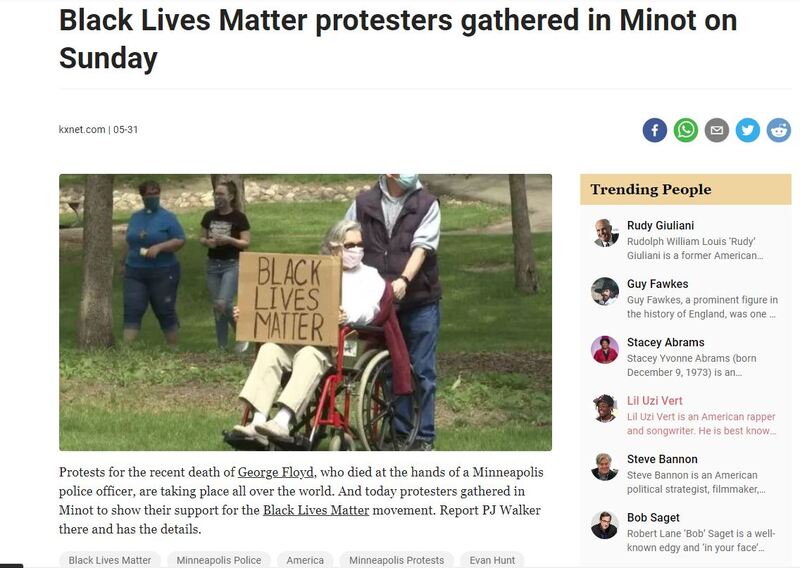 2020-05-31
2020-05-31Black Lives Matter in North Dakota
After the George Floyd murder, citizens in Minot, ND put together a protest and vigil for Mr. Floyd at Oak Park in Minot, ND. Minneapolis is a mere eight hours from Minot and there were many people affected by Floyds murder in North Dakota. -
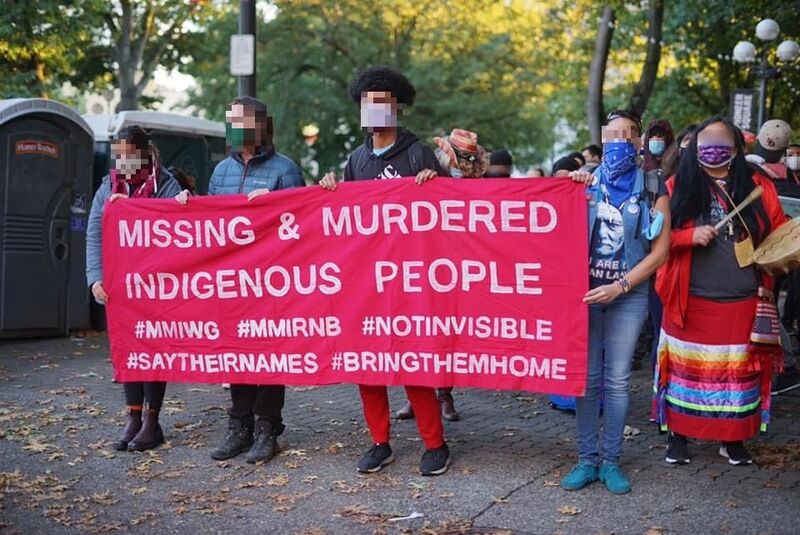 2020-10-12
2020-10-12Indigenous People's Day Gathering
This is a photograph of various indigenous peoples, from tribes in the Pacific NorthWest, gathering in downtown Seattle to celebrate Indigenous People’s Day and commemorate missing and murdered indigenous people. -
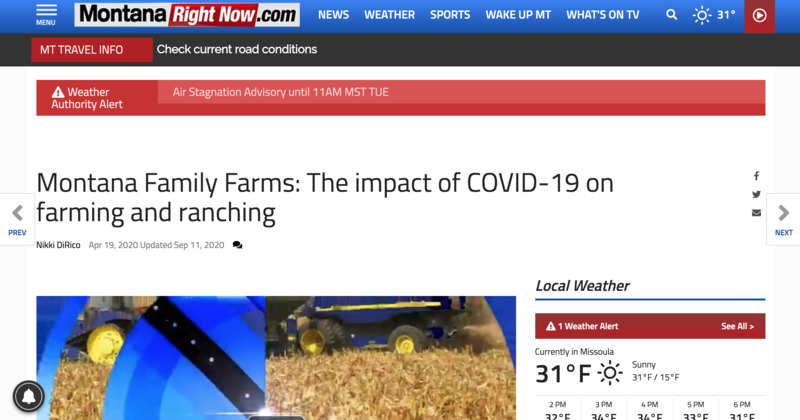 2020-11-06
2020-11-06Montana Family Farms
The impact of covid, supply and demand and the meatpackers in Montana. -
 2020-11-06
2020-11-06The Rona in Rural America
This article is highly interesting because it discusses the supposed political side of covid and its supposed effect on rural communities, rise in numbers, and the overall function of these rural communities. -
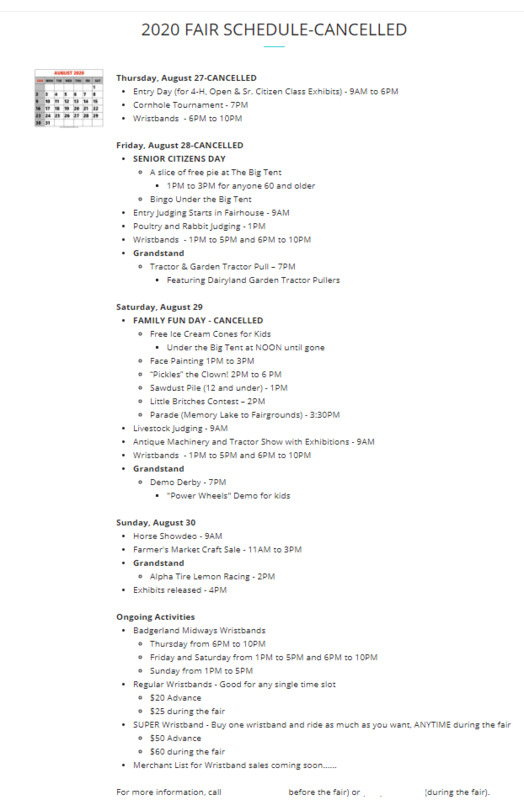 2020-08
2020-08143 Year Tradition Interrupted
The Grantsburg Fair was a big part of my life growing up and it happened every year in August. 2020 would have been the fair's 143rd year but was interrupted due to the pandemic. It was surprising to hear that something that was so expected from my childhood could be interrupted by COVID. -
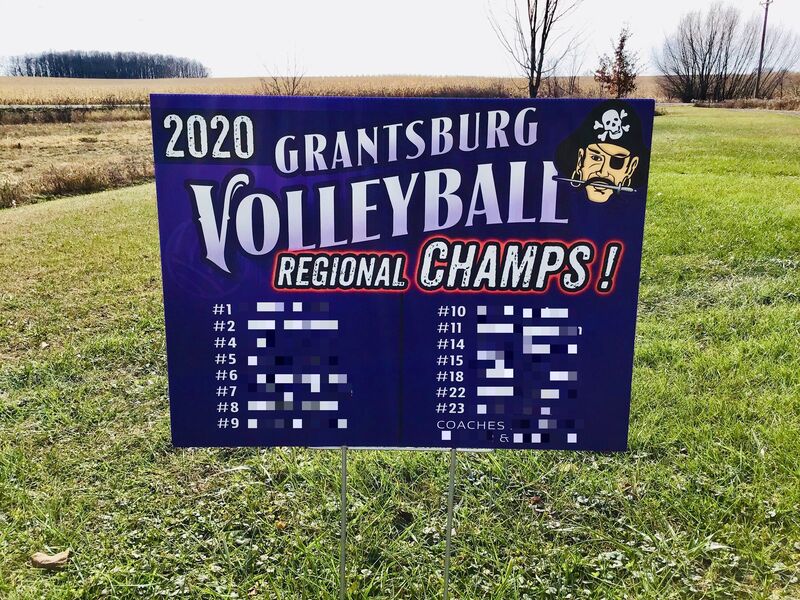 2020-11-06
2020-11-06Supporting a Tradition in a Pandemic
Grantsburg, Wisconsin has been known for years to have a robust volleyball program. Even during a pandemic the school district and students were able to keep up the level of commitment needed to be competitive enough to win championships. -
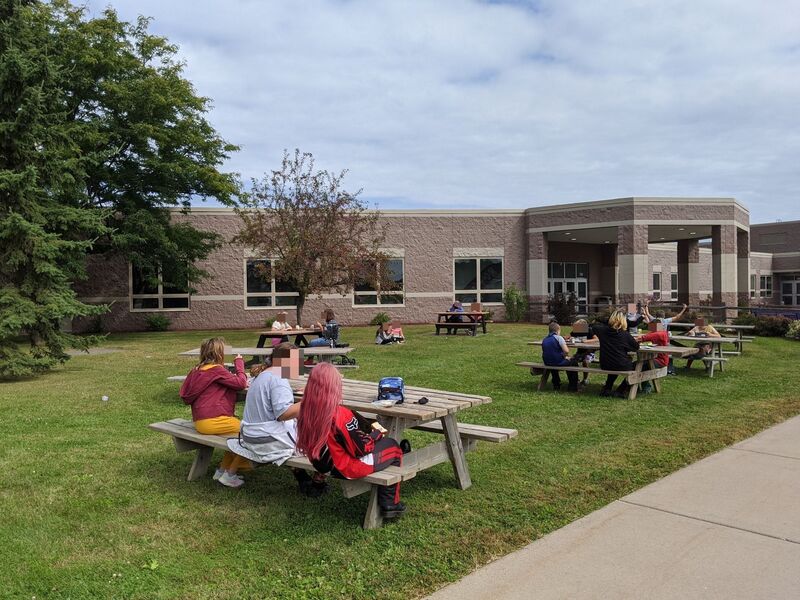 2020-09-11
2020-09-11Wisconsin School Lunch
As a way to mitigate risks for students during lunchtime, the local agricultural society donated picnic tables to the students so they would be able to eat outside with friends mask free. This is important to the pandemic because it shows rural Wisconsin school life and how the community was able to come together to provide for the young students. -
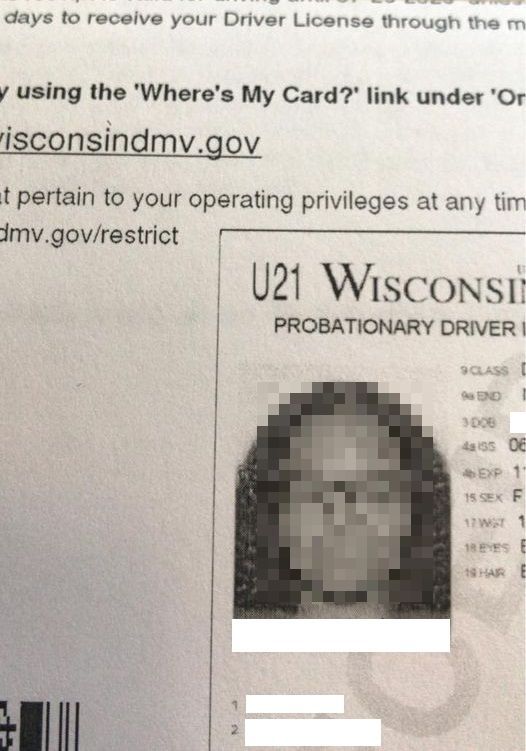 2020-06-11
2020-06-11Life Continues
This is important because even though we are in the midst of a pandemic and many adults feel that their lives have come to a standstill, many younger people are still trying to experience the major young adult milestones that we all got to experience in normal times. -
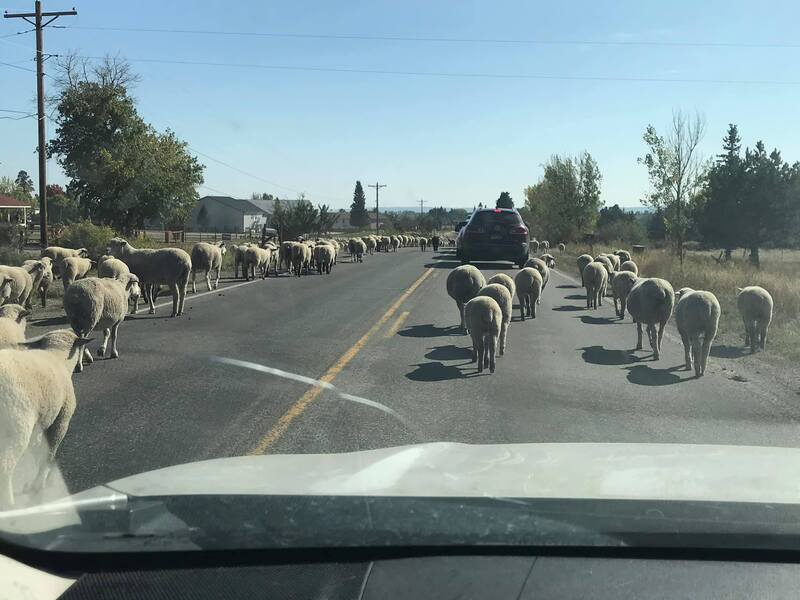 2020-09-25
2020-09-25Business as Usual
COVID has sent the planet for a loop. In general, we are all reeling from the changes and policies that have been implemented. However, in some areas where life moves a little slower, there are some things that continue on, business as usual. -
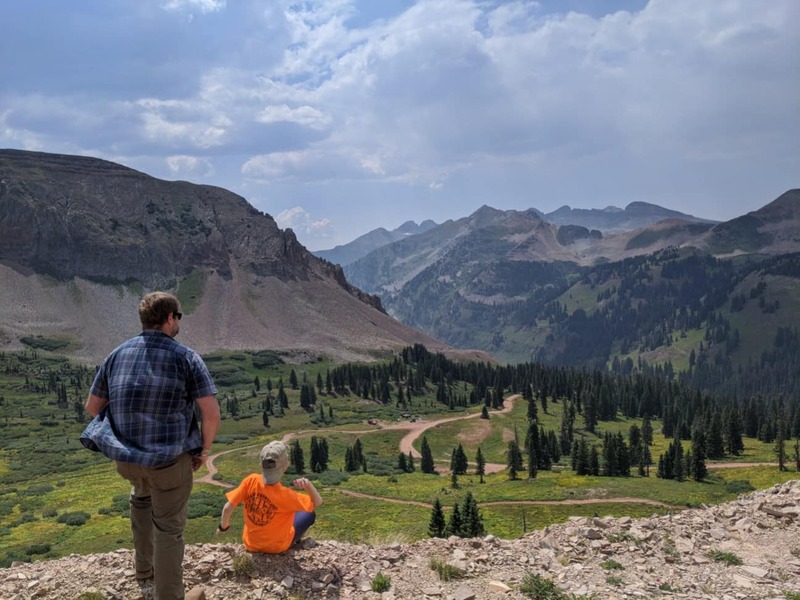 2020-08-20
2020-08-20Get Out!
Even in a global pandemic when everything is shut down, there are still a million things to do and see. This was our family’s trip up Kennebec Pass, which is only an hour from our hose. Covid is the perfect opportunity to explore your own back yard, provided you do so safely! -
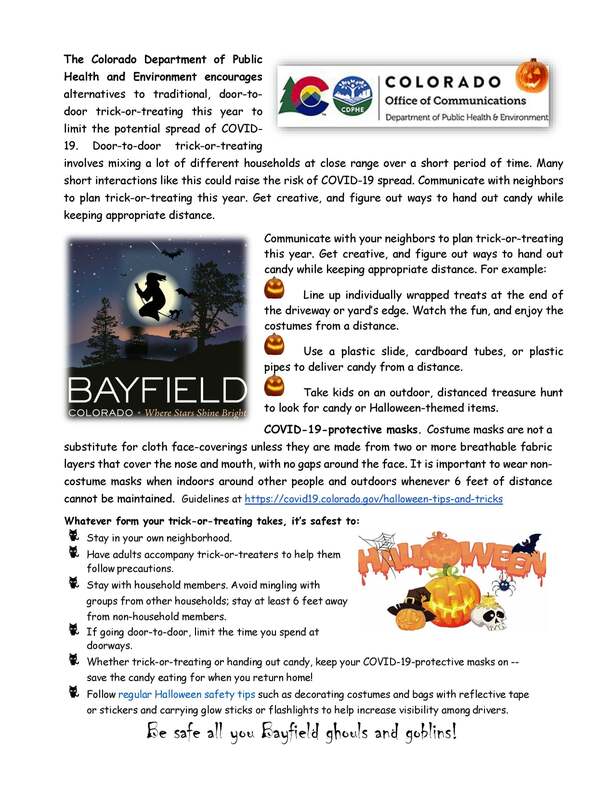 2020-10-09
2020-10-09Adapted Halloween
The Town of Bayfeld has outlined the procedures for Halloween during COVID. -
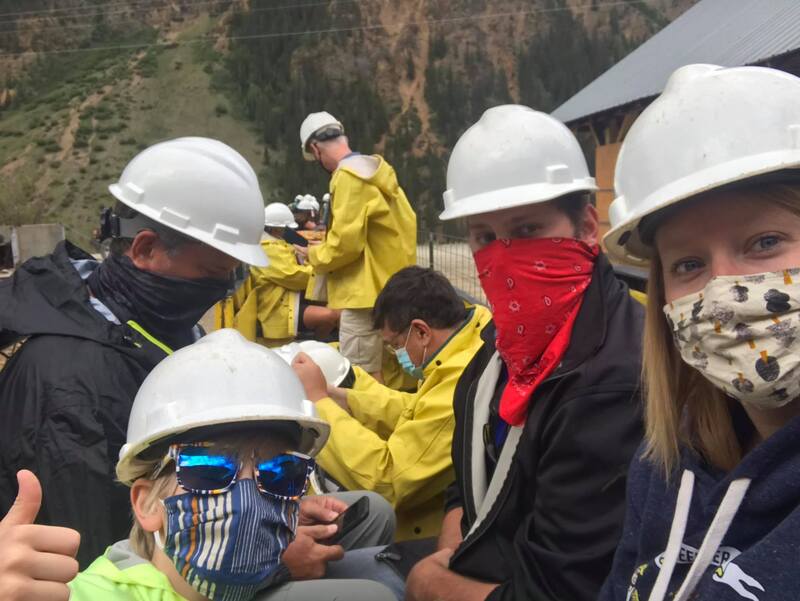 2020-08-08
2020-08-08Extra Protection
When my family and I toured the Old Hundred Mine in Silverton, Colorado, we needed to be protected! In addition the usual hard hat and warm clothing, masks are also required. -
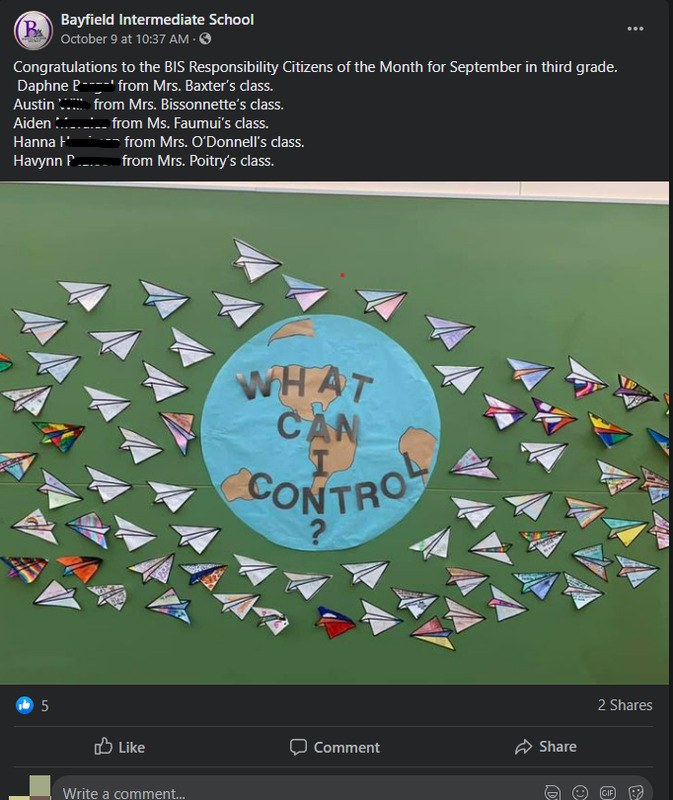 2020-10-09
2020-10-09How Kids are Coping
This is an example of how our local school district is helping children navigate and make sense of this pandemic. -
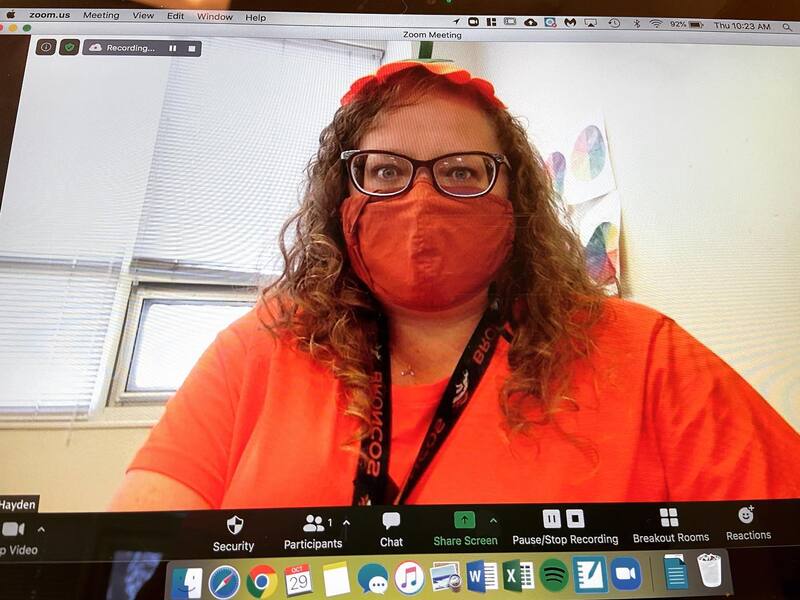 2020-10-30
2020-10-30Teaching Today
This is a photo of my friend, Lindsay. She is a high school teacher here in Colorado. We live in a small town that was fortunate enough to not feel the panic of the pandemic until well-after other places had. She misses her students, and there are real concerns for the mental health of not only the kids, but the teachers too. -
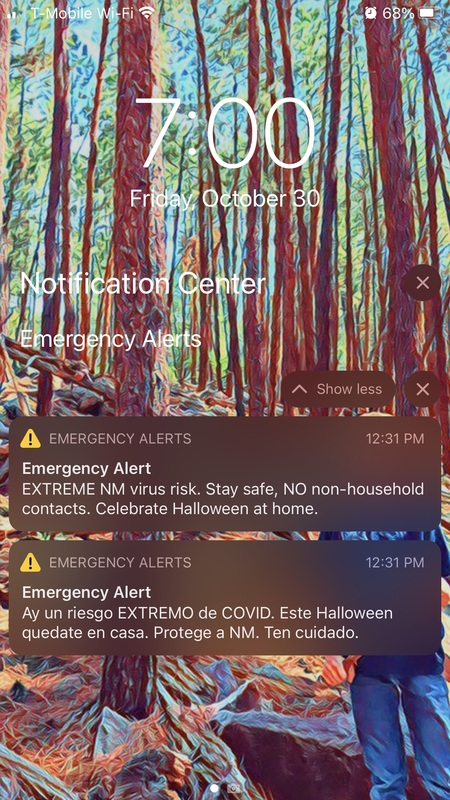 2020-10-30
2020-10-30Concerns From the 4-Corners
This is a screenshot from my phone from this afternoon. I live in Colorado, but depend on New Mexico for several things. I made a quick trip to Target today, and while in the checkout line, everyone’s phones went off. -
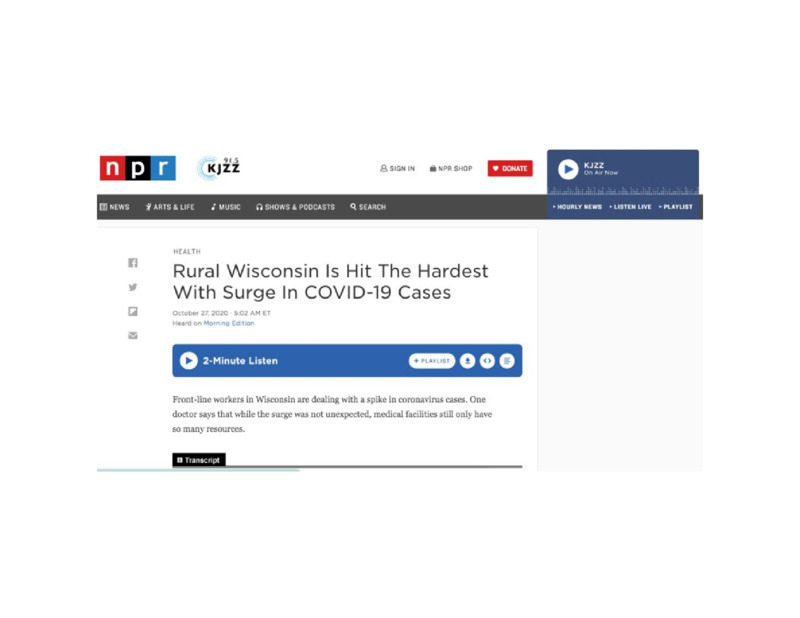 2020-10-27
2020-10-27COVID in Rural Wisconsin
This submission goes into detail from a front line worker on why rural Wisconsin is hit so hard when it comes to COVID, it is important because there are so few voices coming out of this part of the United States. -
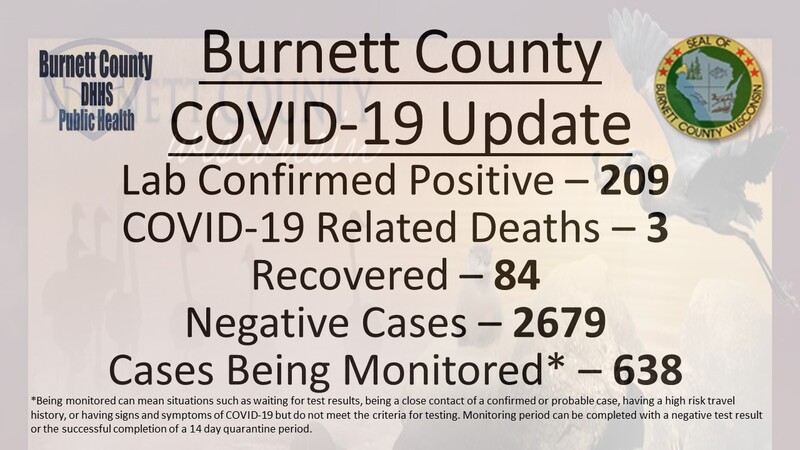 2020-10-01
2020-10-01No New Cases
A recent photo from the Burnett County Sheriff's Office that shows the county had no new cases. It shows the pandemic is not worsening at the moment in a very rural area in Wisconsin -
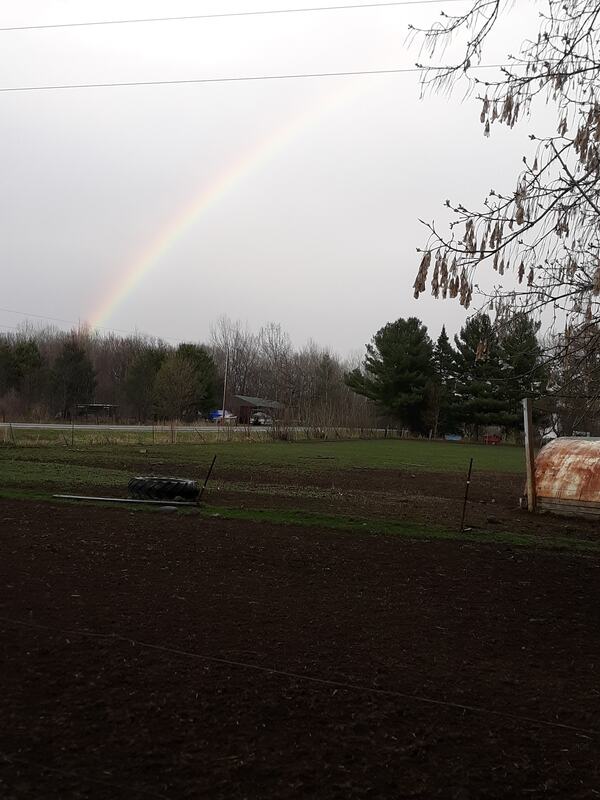 2020-07-20
2020-07-20Rural Rainbow
My aunt's photo of a rainbow on her dairy farm in rural Wisconsin. It shows how a lonely and quiet area in rural Wisconsin during the midst of a pandemic can have beautiful parts to it. -
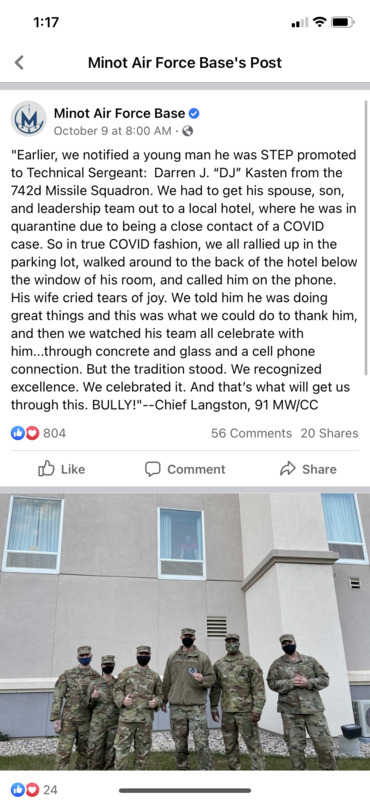 2020-10-09
2020-10-09Socially distanced Military STEP promotion
CCMSgt Langston and other members of leadership surprised SSgt. Kasten with a STEP promotion to TSgt. outside of his hotel room, where he was being quarantined. Minot AFB in Minot, ND has been battling the pandemic and its effects on morale among the Airmen. This story represents the comradery associated with military members and keeping traditions alive. -
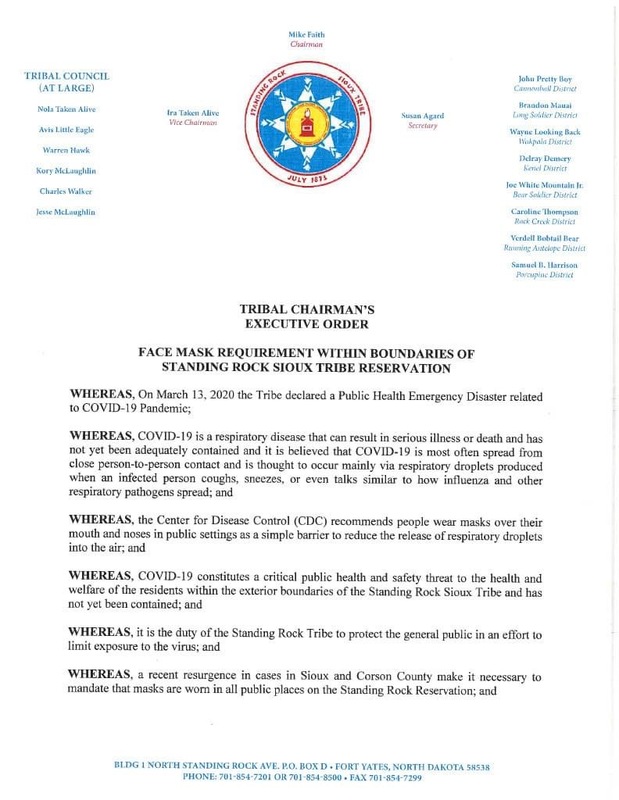 2020-10-27
2020-10-27Standing Rock Sioux Tribe: Executive Order
On October 27, 2020, Chairman Faith of the Standing Rock Sioux Tribe issued an Executive Order mandating the wearing of face masks within the boundaries of the Standing Rock Reservation. The COVID-19 pandemic has hit the hardest among minorities, including Native American tribes. With COVID numbers increasing in the Dakotas, it is no surprise that the local tribes are cracking down on safety measures. The protection of their people and culture will always be their number one concern. -
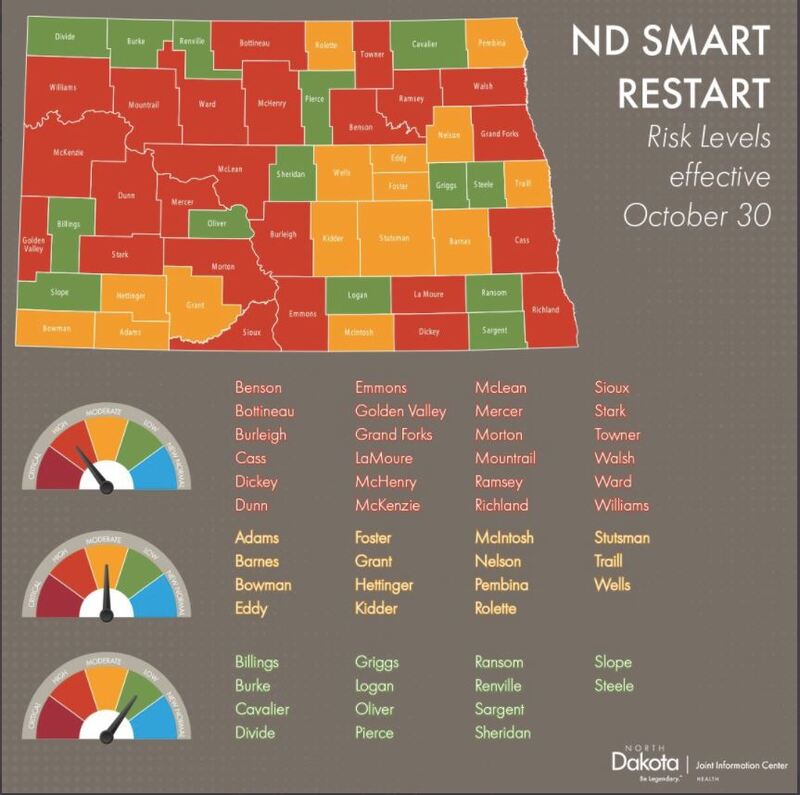 2020-10-29
2020-10-29Governor Bergum adjusts COVID-19 risk level for North Dakota counties
In the early stages of the pandemic, North Dakota shut down like every other state. However, during reopening over the summer, safety protocols, such as masks, were not state mandated, only recommended. This has led us to being the state with the highest cases of COVID in the U.S. right now. During Governor Burgum’s press briefing on October 29, 2020 he adjusted the COVID-19 risk levels for various counties in North Dakota, bumping nearly half of the counties in the state into high risk categories and a quarter of the rest into moderate risk. Governor Bergum is still not pushing for a mandate on wearing masks in public areas, only recommending it. -
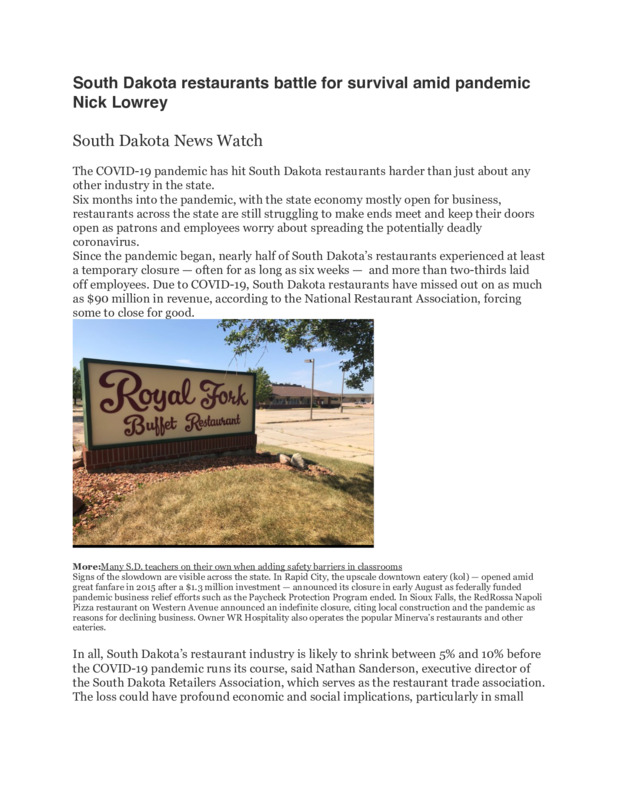 2020-08-30
2020-08-30South Dakota Restaurants Battle for Survival Amid Pandemic
This article focuses on the pandemic and how it has affected the mom and pop restaurants in rural America, South Dakota. It is important to note that all communities, large and small are dealing with this pandemic and restaurants are struggling for survival, but especially in rural areas. -
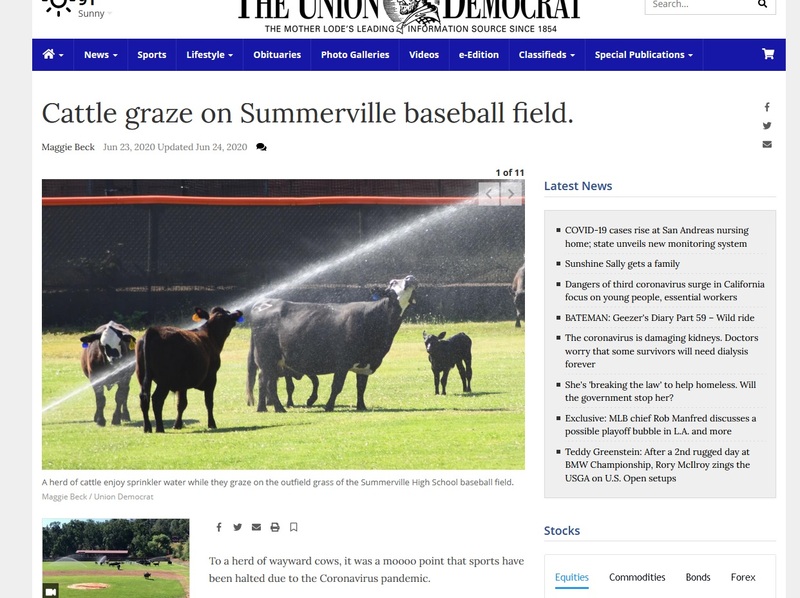 2020-06-23
2020-06-23Cows Graze on a High School's Baseball Field While Students Stay Away
While students continue to practice social distancing and campus won't fully reopen until October 5th, Summerville High in Tuolumne, California received some bovine visitors. In an article filled with puns, the author describes the situation and the corralling of the cows to the baseball field where they could be more easily retrieved and cool themselves with the sprinkler system while they waited. While the students are away, the cows will play! -
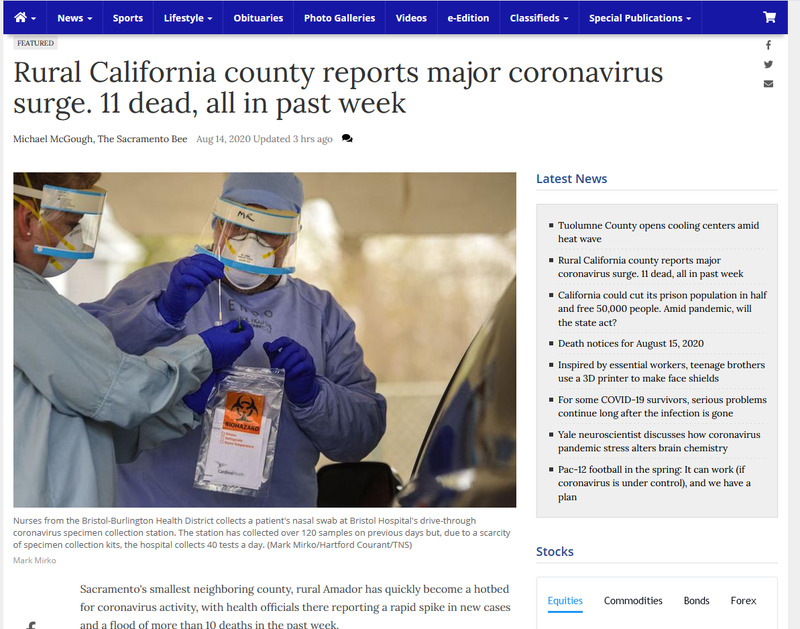 2020-08-14
2020-08-14Amador County Report Major Coronavirus Surge
An article reporting on the surge of COVID-19 cases in a rural California county close to Sacramento, Amador County. -
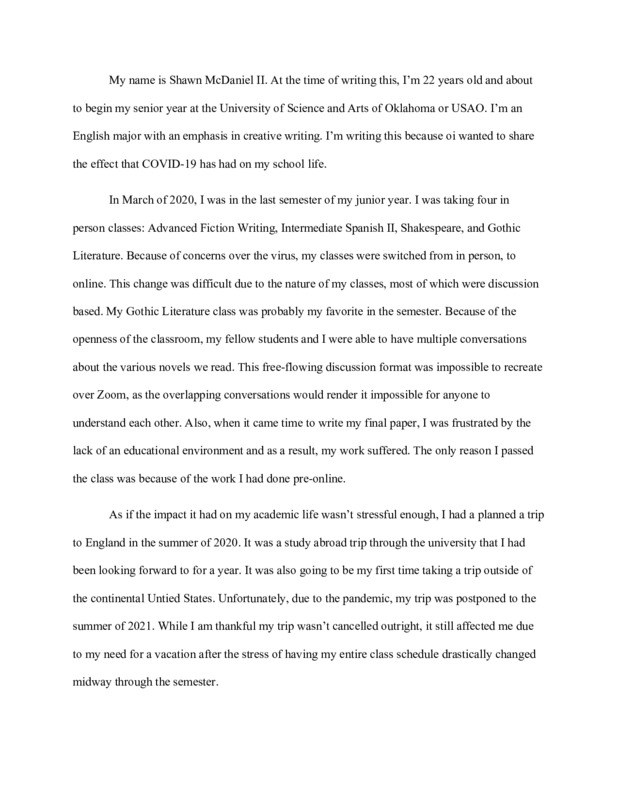 2020-08-07
2020-08-07The Tale of the English Major and the Plague
I have uploaded a written story about how my university adapted to the Covid Pandemic. I wanted to tell the impact it had on my academic career, my personal life, and how my professors adapted to the change. -
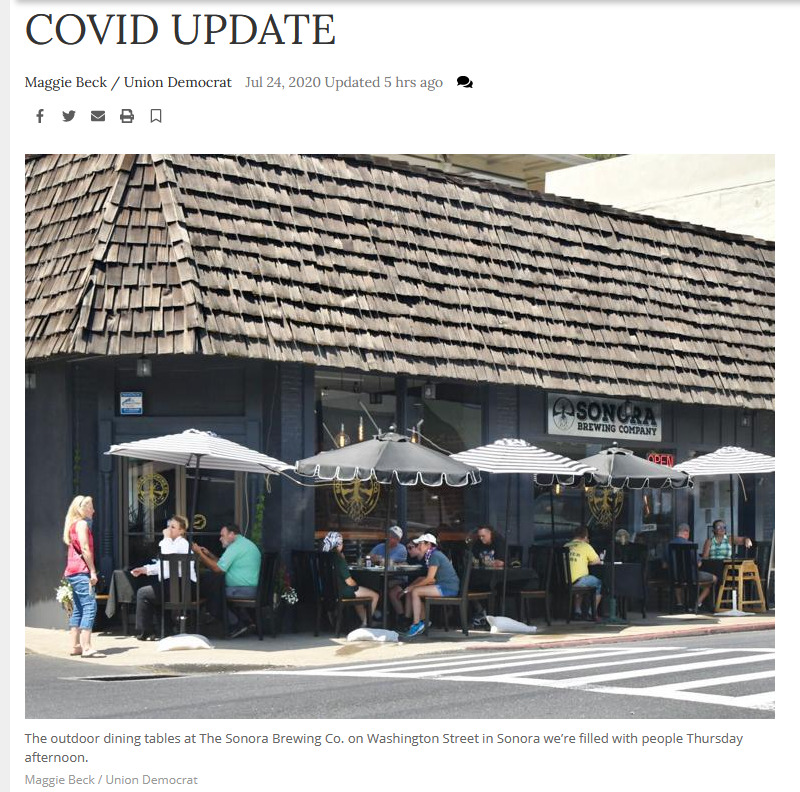 2020-07-24
2020-07-24Sonora Restaurants Take Over Alleyways to Allow Outside Dining Compliant with COVID-19 Restrictions
These photos from the Union Democrat show how some downtown businesses in Sonora, California are innovating to allow table service that complies with California safety standards regarding COVID-19. These pictures show the new outdoor dining spaces for the Diamondback Grill and Sonora Brewing Company. -
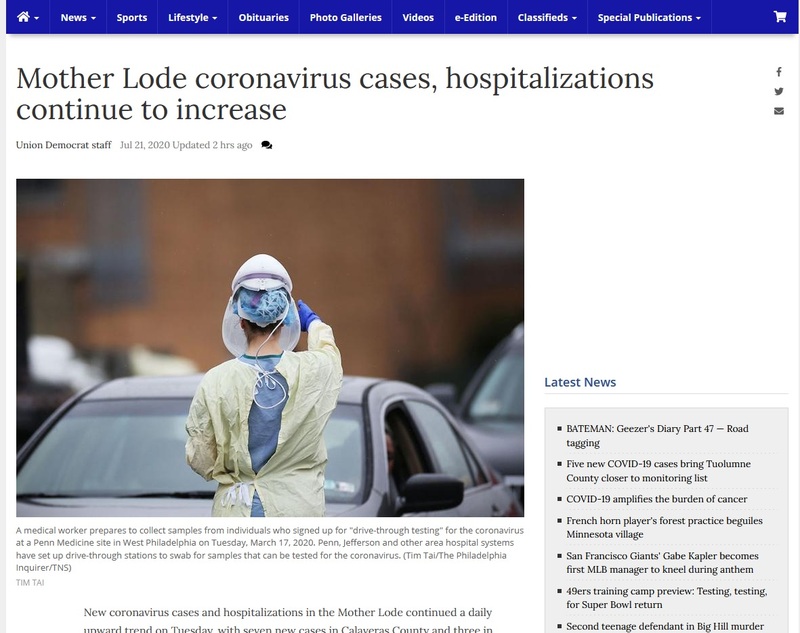 2020-07-23
2020-07-23Mother Lode coronavirus cases, hospitalizations continue to increase
This article reports on increasing cases in the Mother Lode and a the first death from the virus in Calaveras County. There had been 104 cases in Tuolumne County at the time this article was published and cases are continuing to rise. The county is now very close to being put on California's monitoring list for areas of the state with high COVID-19 cases. Doctor's interviewed urge people to get tested to help keep other members of the community safe. -
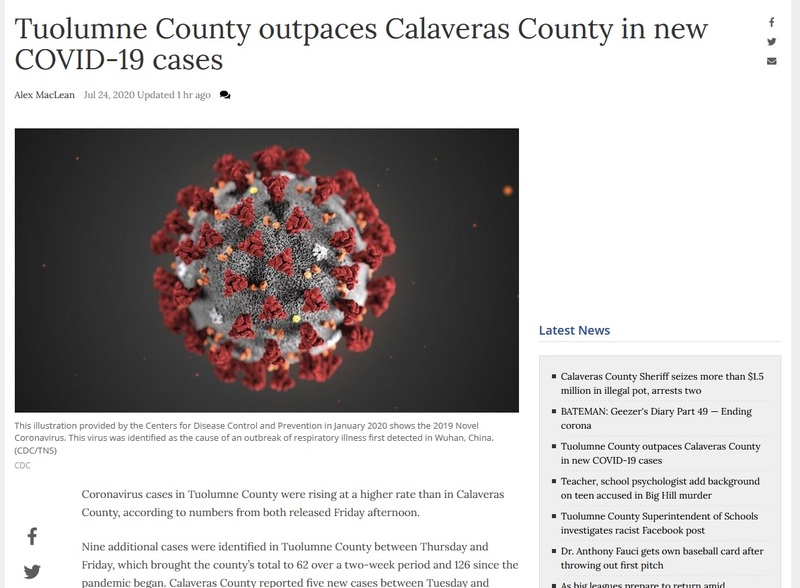 2020-07-27
2020-07-27Tuolumne County outpaces Calaveras County in new COVID-19 cases
The local newspaper reports on increasing COVID-19 cases in Tuolumne County as opposed to the neighboring Calaveras County. These communities are in rural California and Tuolumne County has a fairly large population of COVID-19 skeptics and deniers correlating with their largely republican voting habits. This article discusses how the county must remain under 53 cases over 2 weeks to not have more public spaces closed according to state standards. If trends remain as they are it could mean a return to a heavier lockdown for the county. -
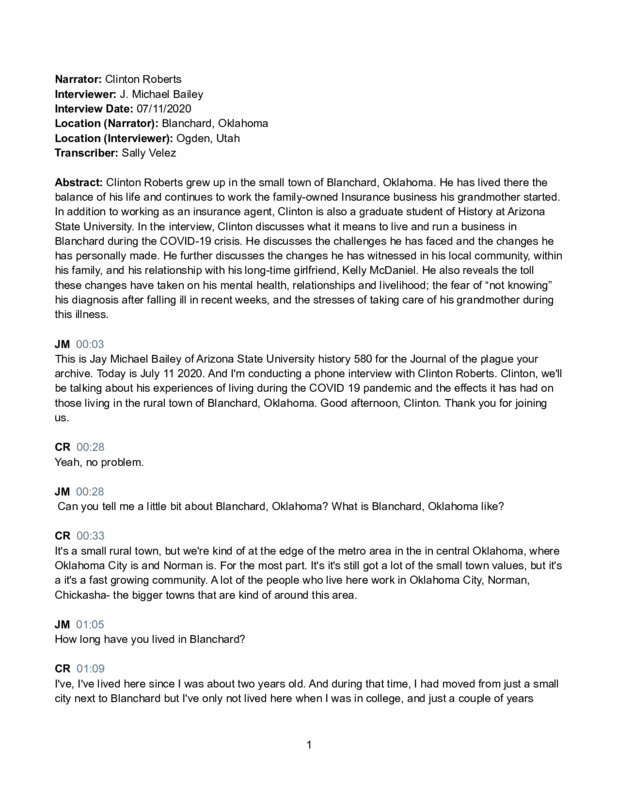 07/11/2020
07/11/2020Clinton Roberts Oral History, 2020/07/11
Clinton Roberts grew up in the small town of Blanchard, Oklahoma. He has lived there the balance of his life and continues to work the family-owned Insurance business his grandmother started. In addition to working as an insurance agent, Clinton is also a graduate student of History at Arizona State University. In the interview, Clinton discusses what it means to live and run a business in Blanchard during the COVID-19 crisis. He discusses the challenges he has faced and the changes he has personally made. He further discusses the changes he has witnessed in his local community, within his family, and his relationship with his long-time girlfriend, Kelly McDaniel. He also reveals the toll these changes have taken on his mental health, relationships and livelihood; the fear of “not knowing” his diagnosis after falling ill in recent weeks, and the stresses of taking care of his grandmother during this illness. -
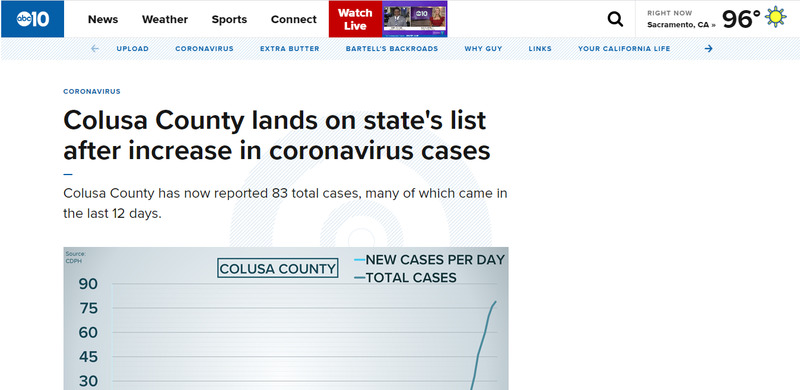 2020-07-06
2020-07-06Colusa County Lands on State's List After Increase in Coronavirus Cases
After a local spike in cases, the California Department of Public Health placed Colusa County on a data monitoring list. -
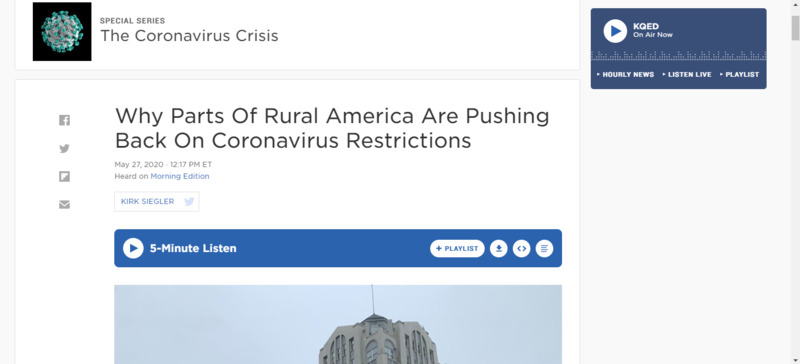 2020-05-27
2020-05-27Push Back in Rural America
Podcast about the push-back by rural Americans against restrictions. -
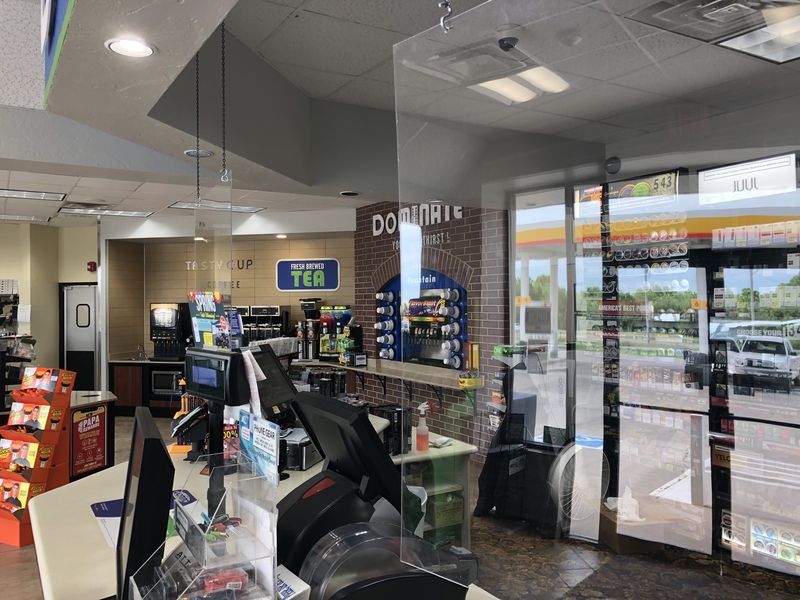 2020-05-31
2020-05-31Plexiglass Barriers Are Becoming the Norm for Businesses Re-Opening During COVID-19
The photograph depicts two plexiglass barriers suspended over counters at a Domino gas station in Blanchard, Oklahoma. These barrier are suspended from wire chains connected to the ceiling. These barriers act as a "sneeze guard" much like similar system have placed in restaurants in the past. Much like CDC recommended social distancing, these barrier act to protect employees and customers while they stand closer than six feet for transactions. This particular barrier at Domino was installed specifically in response to COVID-19. Local businesses, such as Domino, Spencer's Grocery, Subway, and China House were just a few of thoes that had been observed with these plexiglass barriers installed since COVID-19. In addition, local state and federal government offices such as Gayla's Tag Agency and the Blanchard Post Office had made the transition to these plastic protective barriers as well. As many locations make the shift to re-opening, the plexiglass barrier has become a growing standard of how people do face-to-face business, even in rural communities. Personal story submitted for the Rural Voices collection. Contributed by Clinton P. Roberts, curatorial intern for Arizona State University, HST 580. -
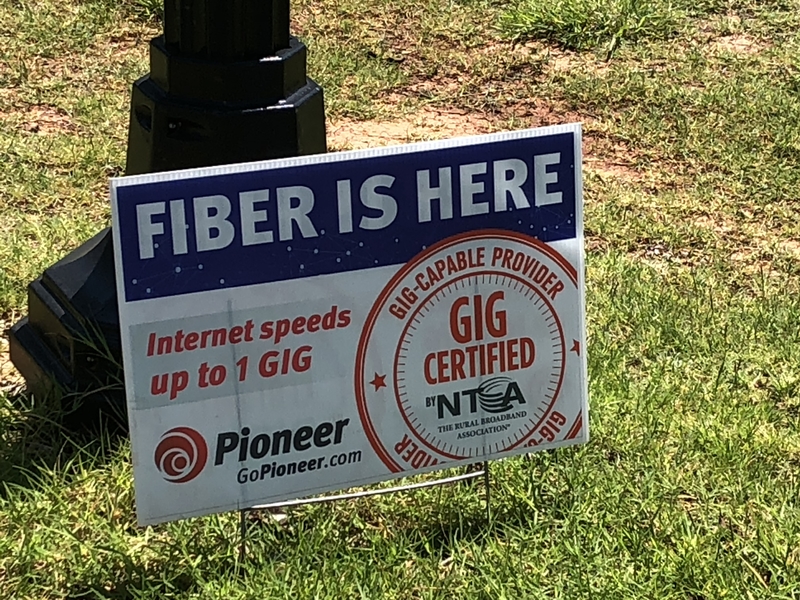 2020-05-31
2020-05-31Internet Upgrade Occurs Just as COVID-19 Fears of Contact with Others and Staying at Home Heightens
The sign depicts advertising to encourage people to sign up for Pioneer Telephone's Fiber Internet in Blanchard, Oklahoma. As a rural community, we had been waiting for fiber access for quite awhile. We are close enough to the Oklahoma City area to see the capability grow, but were too far away to benefit until recently. The local company Pioneer promoted the coming of the internet upgrade for the past year. I had already signed a contract to receive this upgrade in October of 2019, but by chance my neighborhood's service was ready until March 2nd just as COVID-19 concerns were starting to become more widespread. On March 25th state-wide restrictions put in place by Governor Stitt's executive order closed non-essential businesses, limited public gatherings to no more than 10 people, and enacted the "safer at home" protocol for those over 65 or with underlying medical conditions. During this time period I had restricted my exposure to just a few of my closest family in order to protect the older members. Pioneer called the last week of March to set a date, just as the biggest restrictions were occurring. I decided to move forward not realizing how the idea of a person entering my house would change my thoughts just a week later. The utility companies often send people to do work orders, which had never bothered me in the past. When Pioneer arrived on April 3rd to install the upgrade, I began to realize that this would feel very different. For the past month, we had postponed family nights, group dinners, and outings. During that time, we wouldn't dare answer the door for a sales person or go to grocery stores without a mask. The entire month was mostly just Kelly and I in my home with few outs beyond my work or my grandmother's house. The process was somewhat stressful because of how much the COVID-19 situation had changed since signing up for the service. When the man arrived, I noticed he was cautious about how he entered and the social distancing he kept from us. He did much of the organizing of his equipment in my driveway from his pickup. He was a contract worker for Pioneer and his helper was a young man of about eighteen. The two came inside, with the young man doing most of his work from my attic. This was the first time someone other than a few close family members had entered my house since the executive order. His distancing and professionalism helped alleviate many of the concerns. Once he left we used sanitizer wipes to clean door handles, just to be safe. The time he was in my house was cordial and friendly, but it was far from the normal way rural people would act in circumstances like this in the past. There were no handshakes which would've been a standard practice for many people in these encounters. This situation depicts the feelings of uncertainty and the changing of routine habits that occurred during COVID-19. Many of these changes were gradual, subconscious and only visible once we reflected upon them. Personal story submitted for the #ruralvoices collection. Contributed by Clinton P. Roberts, curatorial intern for Arizona State University, HST 580. #HST580 #ASU -
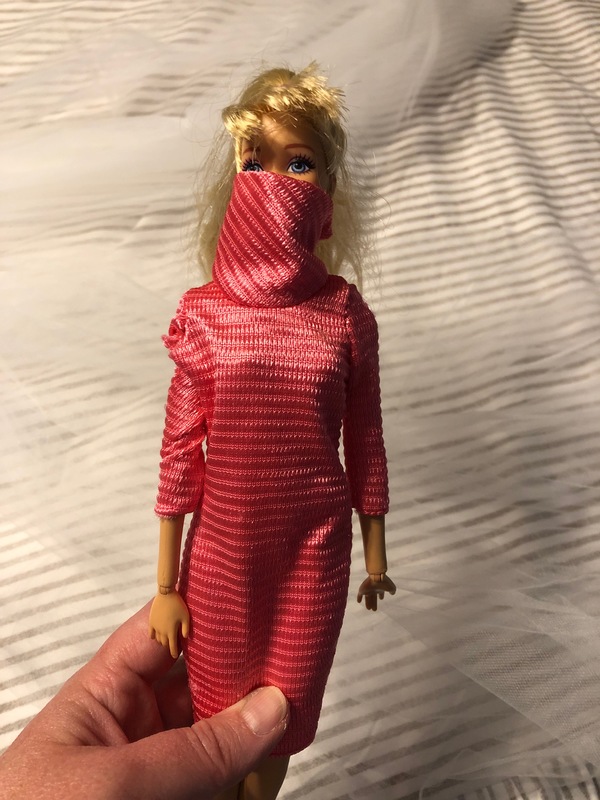 2020-05-29
2020-05-29Interview with 5-Year-Old Emily about her Doll "Corona Barbie" and Missing School During COVID-19
This is an interview from May 29th 2020 with five-year-old Emily of rural Oklahoma about COVID-19. She talks about her doll she named "Corona Barbie" in which she used a high neck dress to cover the doll's mouth like a mask. Emily also talks about missing family vacations, missing school, and especially missing her teacher Mrs. Looper. Growing up in a rural area, she was most excited to be able to share videos of her chickens hatching via Facebook Messenger Kids during the pandemic. Photograph included that inspired the interview is of the actual "Corona Barbie" mentioned in the interview. The photograph was taken on March 16th, 2020. Submitted for the #ruralvoices collection. Contributed by Clinton P. Roberts, curatorial intern for Arizona State University, HST 580. #HST580 #ASU -
 05/27/2020
05/27/2020Kris McDaniel Oral History, 2020/05/27
Interview of recent high graduate Kris McDaniel of Blanchard, Oklahoma by Clinton P. Roberts on 05/27/2020. Kris speaks about changes to his senior year of high school and the unique ways his rural town created a drive-through graduation ceremony due to COVID-19. Kris also speaks generally on what it was like to be a young person in high school, missing key moments due to the pandemic, and what he wants future people to know about this experience in this rural community. Submitted for the #ruralvoices collection. Contributed by Clinton P. Roberts, curatorial intern for Arizona State University, HST 580. #HST580 #ASU
